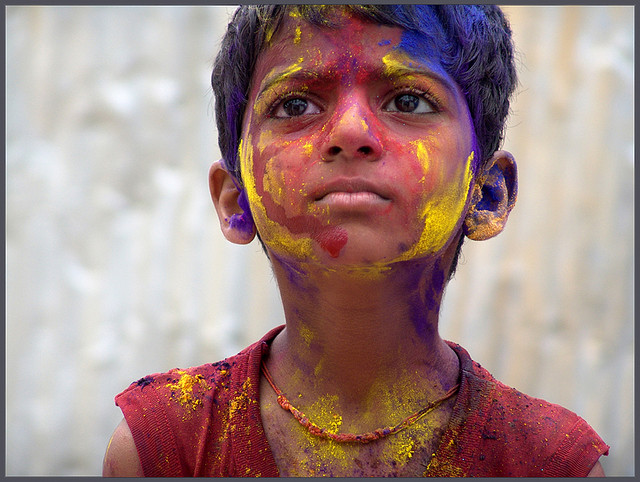The seriousness of childishness
We often think of play as a childish activity which makes us think of spontaneity and impulsivity, or activity that is unstructured and free but I want to suggest that it’s nothing trivial and consider just how serious play can be. Our expression, “child’s play,” makes me think that we think play is an easy business but in reality, when our children play they are engaged in activities that will help them through life in a number of ways. It’s not just about burning energy or keeping them occupied; it might just be the cement that helps construct well rounded personalities from the building blocks of learning.
The seriousness of Play

photo credit: Sukanto Debnath
In a moment I am going to introduce you to Harry in the video below. Now Harry understands the seriousness of play and still finds it enormously enjoyable. The first thing to notice is that Harry’s having fun. You will also see from the sounds in the background that his parents are having fun as well. At the same time Harry is showing us that he can count all the way up 10. He’s letting us know here that he can sing and understand Melody. He’s enjoying social interaction and participating in a group activity. He’s also engaging well with adults so is able to cross generations in his communication. There is much more going on here than counting.
Theories About Serious Play
Sociocultural theory is an emerging theory in psychology that looks at the important contributions that society makes to individual development. This theory stresses the interaction between developing people and the culture in which they live. Plenty of thinkers have plenty to say about learning, development and yes, play.
Now, this is very serious play! Sociocultural theory grew from the work of a Russian psychologist Lev Vygotsky, who believed that parents, caregivers, peers and the culture at large were responsible for the development of higher order functions. He said,
Every function in the child’s cultural development appears twice: first, on the social level, and later, on the individual level; first, between people (interpsychological) and then inside the child (intrapsychological). This applies equally to voluntary attention, to logical memory, and to the formation of concepts. All the higher functions originate as actual relationships between individuals
Meet Harry a Serious Player!
http://www.youtube.com/watch?feature=player_embedded&v=cXoJJfpli-M
Harry shows us just how serious play can be. This is about learning but that is not the end of the story. When children are given opportunities to play where they can express themselves, interact with peers and adults, develop skills and have fun the skills they develop will be strengthened and fixed. On top of that, the adults around them will learn things too and enjoy themselves doing it!




Are you providing this therapy?
And are you working with Occupational Therapists?
HI Debi, thanks for commenting. The therapists here are Michele Karban and Rose Maxwell and they provide therapy for children and adults. I am not sure what your question is in relation to Occupational Therapists but if you care to elaborate or maybe ask a fuller question using the site contact form I am sure you will get a reply.